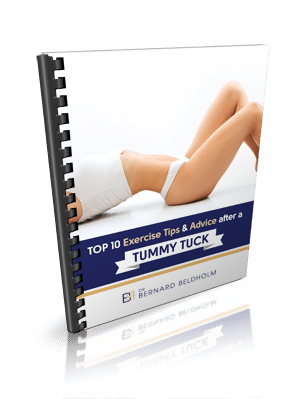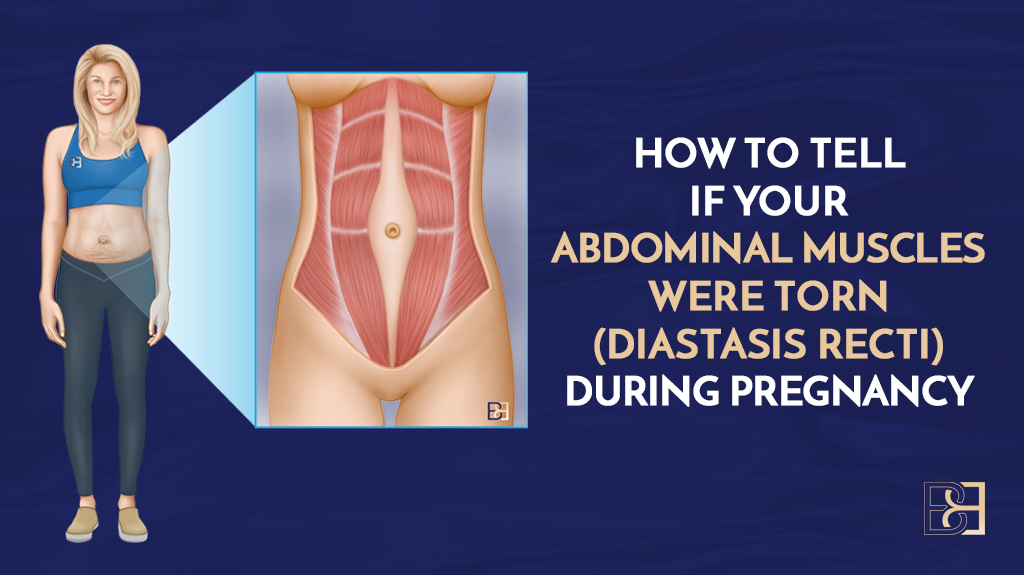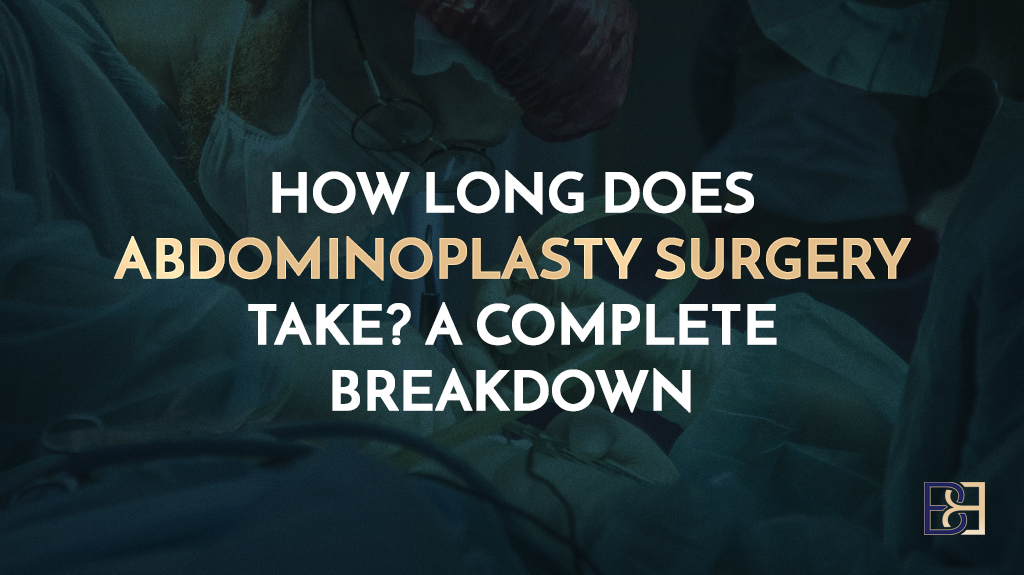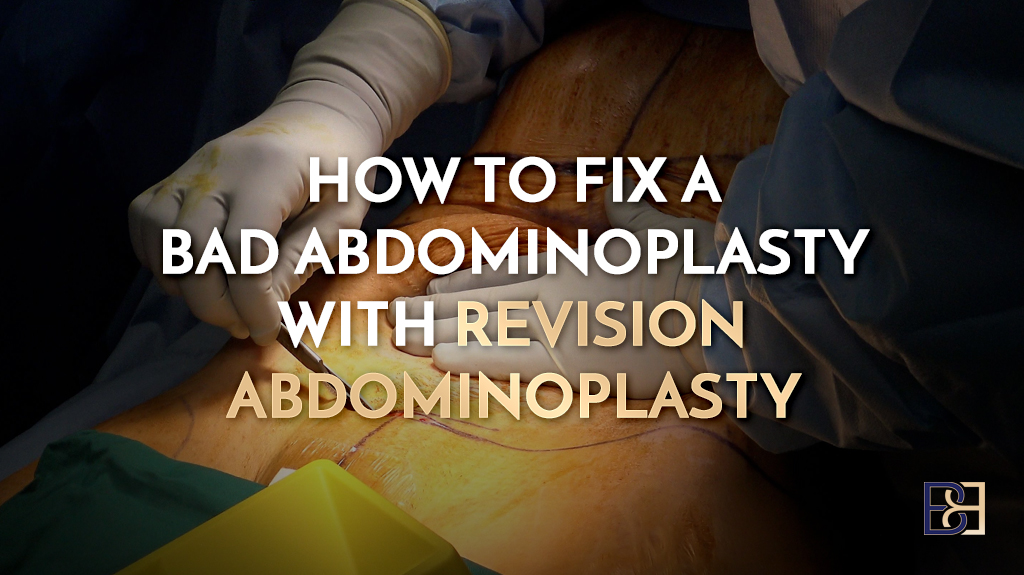A mini abdominoplasty removes loose skin on the lower abdomen only. It is great for some postpartum women and patients who have dropped a few kilos. As a limited procedure, it won’t repair abdominal muscle separation like a full abdominoplasty. It also won’t remove loose skin above the navel. That may have you wondering: Is the recovery process easier since the surgery is less invasive?
The short answer is yes. This guide to mini abdominoplasty recovery will give you an idea of what to expect after leaving the hospital. Keep in mind these are general guidelines; Everyone heals differently.
Book your appointment online now
Day 1
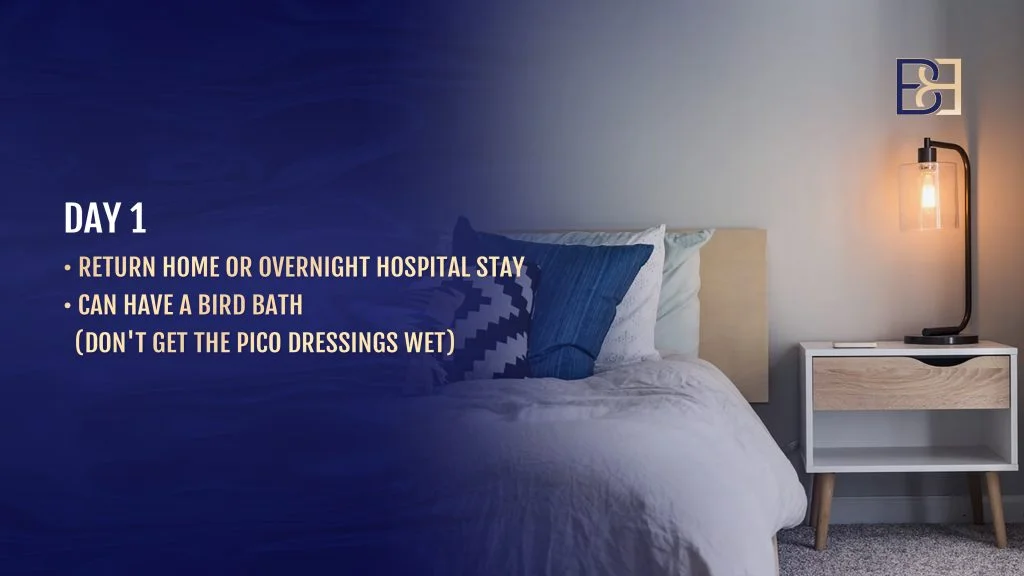
Expect to feel tired and sore today when you return home from the hospital.
Leave the Hospital
You will wake up from the surgery in a recovery room. After you have some time to settle in, Dr Beldholm will come by to let you know how your surgery went. Many patients are discharged from the hospital when they feel ready to go home about an hour or two later. In some cases, an overnight hospital stay may be required.
Take a Bird Bath
Most patients are relieved to take a refreshing shower once they return home. It is advised not to shower during the first 24 hours after a mini abdominoplasty. If you had your mini abdominoplasty with Dr Beldholm, know that the advanced PICO wound dressing he placed on your abdomen can’t get wet. Neither can the battery pack that is attached to it. You will keep the bandage on when you shower; Do not remove it. Instead, take a bird bath by splashing water on your arms, torso, legs, and privates. Keep the water pressure low so that you don’t risk soaking the PICO dressing or battery.
Physical Activity
Rest on the first day, but be sure to take short walks every few hours to lower the risk of blood clots in the legs. You may feel groggy, tired, and sore in your abdomen. There will also be significant swelling. However, it’s important to get up and move around every few hours to get your blood flowing.
Day 2 to 7
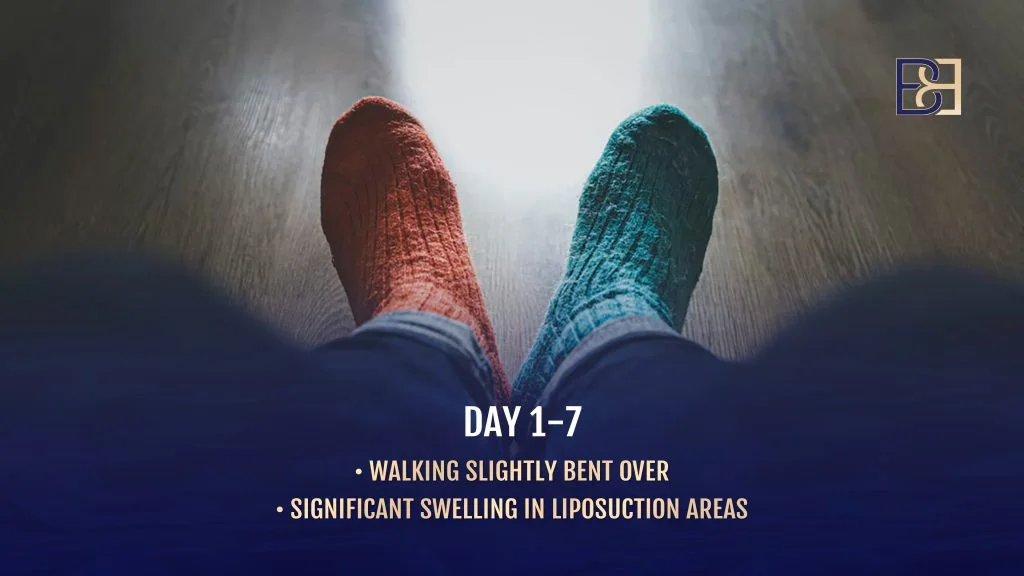
You are still in the early stage of healing.
Pain Management
Expect moderate tenderness and significant swelling in the abdomen and liposuction areas. It can be difficult to bend , turn, or get out of bed. To make the pain less chllenging, Dr Beldholm may prescribe analgesics to relieve your pain.
Showering
During the first week, you will still be wearing the PICO wound dressing. Feel free to take a bird bath each day to freshen up; Just be sure to avoid getting the PICO dressing and battery pack wet.
Physical Activity
While it is not advised to exercise yet, you can and should take a short walk each hour. Lying still for long periods can cause blood clots in the legs, which can lead to a fatal pulmonary embolism. Whether you are walking around the house in a robe or getting outside for some fresh air, the important thing is that you get moving for at least five minutes every hour. Walking bent at the waist is easiest. You can also stretch your legs by pointing your toes and move your feet in circles to get your blood flowing.
Household and Childcare
It is not allowable to drive or do any heavy lifting yet. You’ll want to ask family members or friends to help with chores, errands, cleaning, meals, and grocery shopping. If you have small children, ask for assistance with lifting, feeding, and diaper changes. While it may be tempting to be a supermom, you need to put yourself first and be willing to receive help from outside sources as you are recovering from surgery.
Days 7 to 9
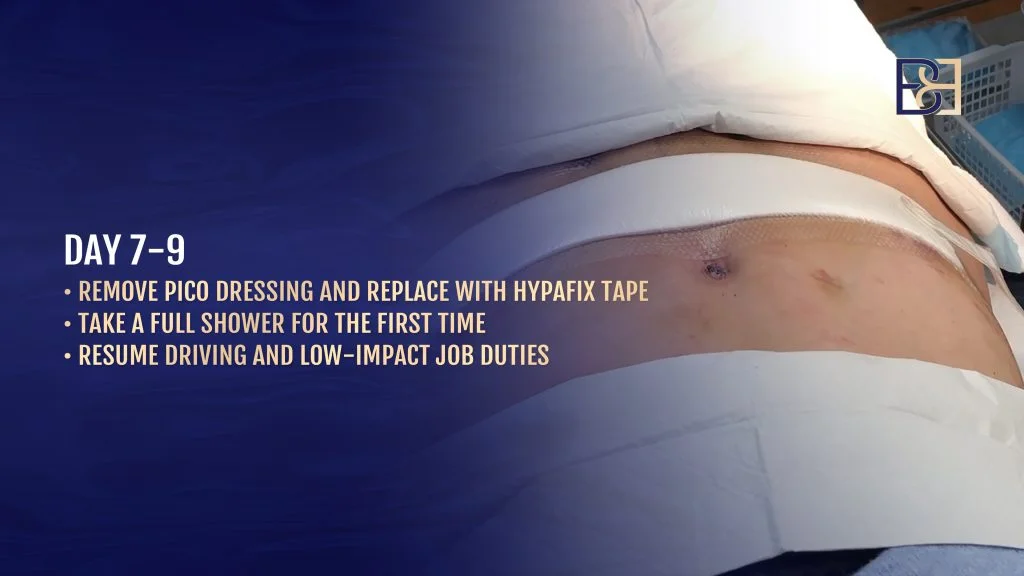
Get ready for a little more freedom and movement as you start feeling better.
See Your Surgeon for a Follow-up Visit
After a week has passed, you will see Dr Beldholm in his office for a follow-up appointment. During this visit, he will remove the PICO wound dressing and replace it with Hypafix tape. When he takes the bandage off, the scar is beginning to heal nicely in most cases.
Showering
The Hypafix tape can get wet, so it is okay to take a proper shower. You can wash your hair and linger in the shower for a while longer than you did last week. Most patients are very happy to feel clean and fresh after a week of taking bird baths.
Resume Work and Driving
After a week or so, you can return to low-impact job duties like computer work. Please avoid heavy lifting and physical exertion as you are still in the early stage of healing. You can also get behind the wheel to drive if you feel up to it. Go for a test drive on a quiet street to make sure you feel strong enough to drive defensively. Always wear your seat belt, even if your abdomen feels a bit sore still.
Day 10
With each day that passes, you are gradually feeling more like yourself. By now, most patients are walking upright, whereas before they had to bend at the waist. Now is the time to go for longer walks. You can also try low-impact activities like going to a museum, cinema, or shopping if you feel up to it. That said, you will probably want to take it slow as you are still sore and swollen.
Week 2
By two weeks post-op, most patients say they are feeling more normal.
Less Discomfort
Of course, the swelling and tenderness are still present, but the discomfort isn’t as sharp as it was during the first few days of recovery.
Resume Light Exercise
Feeling more like yourself means you can get back to some of your usual activities, including light exercise. That doesn’t mean going for a run or hitting the gym for an intense workout session. Instead, try low-impact activities like long walks, floor exercises, riding a stationary bike, or lifting 2.5 kg dumbbells. Always listen to your body. If you feel any new or worsening pain, stop immediately and give your doctor a call.
Month 1
Progress is happening!
Swelling Begins to Resolve
The swelling in the abdomen and liposuction (Suction assisted lipectomy) areas is less pronounced. Bear in mind it can take several months to a year for all the swelling to resolve. As the swelling dissipates, the results of your tummy tuck (Abdominoplasty) begin to show. It can take a year or more to be rewarded with the final outcome.
Physical Activity
Most patients are cleared for vigorous exercise about a month after a mini abdominoplasty. The incision should have healed nicely by now. It is generally allowed to jog and get back into your regular workout routine. Enjoy your newfound freedom of movement, but don’t push yourself too hard. If you feel pain during exercise, take a break to rest or pick up where you left off the next day.
Month 3
Three months have passed, and you are probably feeling back to normal.
Numbness
During the first three months, you felt some numbness in your abdomen. This is a normal response to tummy tuck (Abdominoplasty) surgery. Sensation usually begins to return around the three-month mark. Do not be alarmed if you have occasional, brief shooting pains in your abdomen. This is indicative of the nerves regaining sensation as they repair themselves.
All Activities Resume
By three months, nearly all patients are back to their normal routine without restriction. Jogging, exercising, driving, working, and running errands start to feel like they used to. Real progress is happening. You are starting to get used to your new body and are excited to see how your results continue to evolve as the swelling continues to go down.
Month 6 to 12
At this point, nearly all of the swelling has subsided. Since the tissues are no longer inflamed, firmness in the abdomen settles down. By their one-year tummy tuck (Abdominoplasty) anniversary, most patients are enjoying their final results. The scar also begins to fade. While scar fading can be a slow process, it should begin to lose pigment and fade gradually. Keep the scar out of the sun to avoid worsening the scar.
Months 12 to 18
At this stage, the mini tummy tuck (Abdominoplasty) scar has faded significantly in most cases. Ideally, the scar continues to lighten in color over time. The surgical scar is permanent, but it ideally blends into the surrounding skin so it is not obvious from a distance. Dr Beldholm also places the mini abdominoplasty scar on the lower abdomen so it isn’t visible in most styles of swimwear.
Book your appointment online now
Disclaimer: Individual results and recovery experiences vary. All surgical procedures carry risks. Seek a second opinion from a qualified health practitioner before proceeding.

